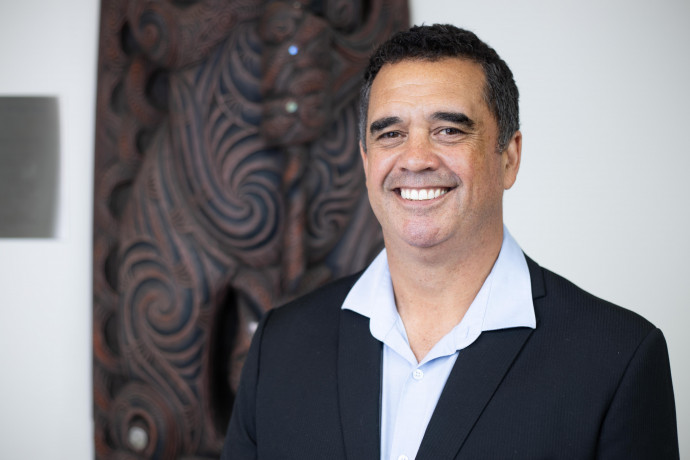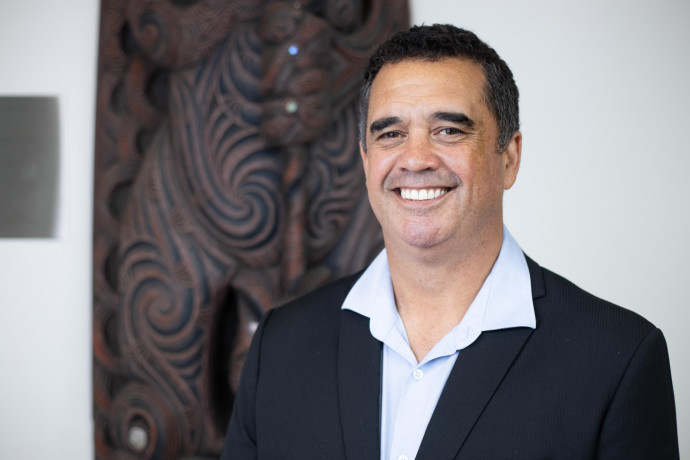
Photo used with the kind permission of ‘The Prime Minister’s Science Prizes Secretariat’; all rights reserved.
Dr Rangi Matamua (Tūhoe) is one of Aotearoa’s top science communicators, a professor at the University of Waikato and an expert in the fields of Māori astronomy and star lore, as well as Māori language development, research and revitalisation. Not only is he an expert in these fields but he loves to talk about them and travels extensively throughout the country giving public lectures about Matariki and Māori astronomy.
Dr Matamua received the Prime Minister’s Science Prize and won the 2020 Callaghan Medal, as well as being awarded the Fellowship of the Royal Society Te Apārangi in recognition that his work “has revolutionised understandings of Māori astronomy, and in particular Matariki”.
Dr Matamua has been critical of the way Western scientific astronomy belittles or ignores traditional Māori knowledge. One of his future plans to address this imbalance is to create a Māori observatory, based on a traditional observatory but also using modern technology and knowledge. He is also the author of several excellent books on these subjects.
This interview was done in conjunction with Caffeine and Aspirin, the arts and entertainment review show on Radioactive FM and was conducted by host Tanya Ashcroft.
We are thrilled that Dr Matamua took time out from his very busy schedule to talk to us about his new book, his career, and loads of other fascinating scientific topics, and we wish to extend our heartfelt thanks to him. For more information visit https://livingbythestars.co.nz/.
Dr Matamua’s books are available to borrow from the library; see details below.
Matariki : te whetū tapu o te tau / Matamua, Rangi
“In midwinter, Matariki rises in the pre-dawn sky, and its observation is celebrated with incantations on hilltops at dawn, balls, exhibitions, dinners and a vast number of events. The Matariki tradition has been re-established, and its regeneration coincides with a growing interest in Māori astronomy. Still, there remain some unanswered questions about how Matariki was traditionally observed. What is Matariki? Why did Māori observe Matariki? How did Māori traditionally celebrate Matariki? When and how should Matariki be celebrated? This book seeks answers to these questions and explores what Matariki was in a traditional sense so it can be understood and celebrated in our modern society.”(Adapted from Catalogue)
Matariki : the star of the year / Matamua, Rangi
“In midwinter, Matariki rises in the pre-dawn sky, and its observation is celebrated with incantations on hilltops at dawn, balls, exhibitions, dinners and a vast number of events. The Matariki tradition has been re-established, and its regeneration coincides with a growing interest in Māori astronomy. Still, there remain some unanswered questions about how Matariki was traditionally observed. These include: What is Matariki? Why did Māori observe Matariki? How did Māori traditionally celebrate Matariki? When and how should Matariki be celebrated? There has been a resurgence of interest in and celebration of Matariki, and this book provides accessible information about its meaning and significance, how to locate Matariki and when, traditional customs and knowledge regarding Matariki and current-day practices”( Adapted from Catalogue)
Ngā kete mātauranga : Māori scholars at the research interface
“In this beautiful and transformative book, 24 Maori academics share their personal journeys, revealing what being Māori has meant for them in their work. Their perspectives provide insight for all New Zealanders into how mātauranga is positively influencing the Western-dominated disciplines of knowledge in the research sector. It is a shameful fact, says co-editor Jacinta Ruru in her introduction to Ngā Kete Mātauranga, that in 2020, only about 5 percent of academic staff at universities in Aotearoa New Zealand are Māori. Tertiary institutions have for the most part been hostile places for Indigenous students and staff, and this book is an important call for action. ‘It is well past time that our country seriously commits to decolonising the tertiary workforce, curriculum and research agenda,’ writes Professor Ruru.” (Adapted from Catalogue)


